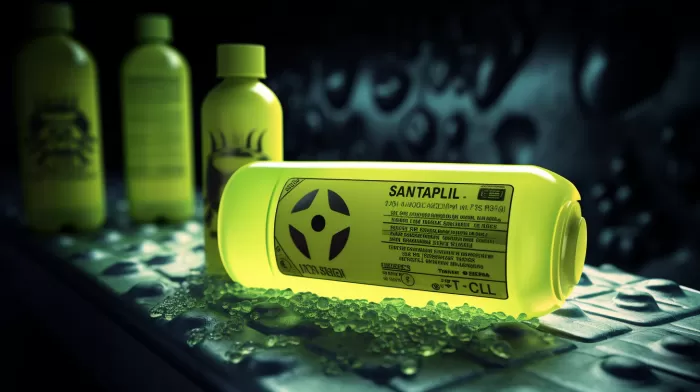When it comes to hygiene, you might believe that using antibacterial soap, toothpaste, or cosmetic products containing triclosan is keeping you extra clean and free of germs. However, you may want to think twice before putting these products into your shopping cart. Why? They may be doing more harm than good. It appears that this chemical, which is frequently absorbed by the body, actually increases your risk of developing allergies.
Triclosan, which is found in a wide range of products, has been linked to increasing levels of Immunoglobulin E (IgE) in the body, an immune component that is associated with allergies. This has been thoroughly demonstrated in a study called the Norwegian Environment and Childhood Asthma Study. The children in the study exposed to Triclosan were found to more frequently suffer from stuffy noses and hay fever. Astoundingly, research shows that four out of five children in the U.S. possess detectable levels of this chemical in their bodies.
So, how does triclosan contribute to the development of allergies? Let’s dive a bit deeper into what it does to our body.
The Antibacterial Effect – Good or Bad?
Triclosan is designed to be an effective germ killer. However, while it may kill harmful bacteria, it also changes the bacterial population on the skin, mouth, and intestines. Unfortunately, it also kills off good probiotic bacteria, which are essential for our overall health and immune system balance.
Disrupting our immunity has severe consequences. The increased use of triclosan and other antibacterial products has been generally associated with an increased incidence of allergies. The problem lies in the fact that a weakened or imbalanced immune system is more susceptible to developing allergies. Moreover, a body with lower levels of good bacteria is more prone to inflammation – another potential trigger for allergies.
The negative impacts of using triclosan-containing products may even extend beyond allergies. Studies have suggested that exposure to triclosan could also be linked to hormonal disruptions, a weakened ability to fight infections, and even certain types of cancer.
What Can You Do to Protect Yourself and Your Family?
The best course of action is to reconsider the products you use in your daily routine. The following are some steps you can take to minimize your exposure to triclosan while still staying clean and healthy:
1. Read the labels
Make it a habit to carefully read the labels of any soap, toothpaste, or cosmetic products before purchasing them. Look for products labeled “antibacterial” or containing “triclosan” and avoid them.
2. Stick to plain soap and water
Plain soap and water are often just as effective at keeping you clean and germ-free, without the added risks that triclosan-containing products can bring. The [U.S. Food and Drug Administration (FDA)] (https://www.fda.gov/consumers/consumer-updates/antibacterial-soap-you-can-skip-it-use-plain-soap-and-water) confirms that plain soap and water are perfectly sufficient for washing hands and maintaining personal hygiene.
3. Opt for natural alternatives
There are many natural and triclosan-free products available in the market, which can be equally, if not more effective at keeping you clean and germ-free. This includes using essential oils such as tea tree, lavender, and eucalyptus, which are known for their antibacterial properties.
4. Boost your immune system through lifestyle choices
To keep your immune system healthy, focus on your overall health and lifestyle. This includes consuming a balanced diet rich in vitamins, minerals, and probiotics, getting regular exercise, sleeping well, and managing stress.
5. Keep your environment clean
Reducing your reliance on antibacterial products doesn’t mean you should neglect cleanliness. Ensure that your home is regularly cleaned and disinfected using safer alternatives, such as white vinegar, baking soda, or hydrogen peroxide.
The Norwegian Environment and Childhood Asthma Study is a crucial reminder that being “too clean” may not always be in our best interests, especially if it comes at the cost of our immune system and overall health. It is essential to question the chemicals we expose ourselves and our families to and make more informed choices. In the end, simpler might just be better. Stick to the basics, and your body will thank you for it.



